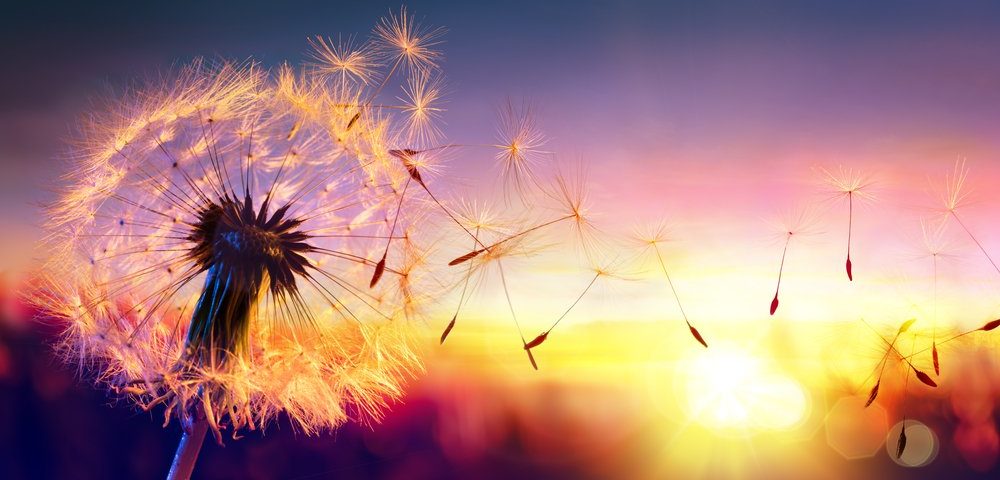If you follow the kind of Instagram accounts I do (periods and feminism, anyone?) you might be used to seeing posts about our inner seasons. You may also be wondering what the hell that means.
I’ve mentioned previously that women are cyclic. Nature has its seasons, as do we — especially as women. A patriarchal society has led us to believe that our cycles are related only to our monthly bleed, and we can choose to forget about that part with pills, anyway (though of course, certain people need these, and we all have the right to choose the best way to handle our endo). Many of us force ourselves to carry on through our periods, trying our best to be “normal” and perform without being affected by our periods or hormones – as men would, essentially.
But what if instead of suppressing our female biology, we embrace it and work with it?
That’s what the inner seasons are about. Women’s hormone cycles can be broken down into four stages, known as:
- Menstrual phase
- Follicular phase
- Ovulation phase
- Luteal phase
These also are known as our inner Winter, Spring, Summer, and Autumn.
How much do we really know about our cycle? For most of us, it stops at when we’re bleeding and maybe when we can get pregnant. But our cycle has a very real effect on our physical and emotional being. The cycle causes biological changes in us every week, if not every day, and these have an impact on our bodies, minds, and emotions.
Understanding this is a huge step toward making peace with our bodies. Instead of feeling like we’re up and down, we can learn to recognize our patterns and plan accordingly. Instead of comparing ourselves to the men in our office, we can understand how we’re different and harness the strengths of these differences. Instead of wondering what the hell our body wants from us, we can recognize what it needs and when.
The first season I want to bring awareness to is our Winter phase — our period. Firstly, this is when the cycle starts, but it’s also the part many of us want to ignore — and many of us have been taught to hate, especially with endometriosis.
So, let’s start with the science. Our period starts as a result of the hormone progesterone plummeting. This triggers our body into shedding the womb lining and beginning the bleed, but other things also are going on. Your estrogen levels are very low at this point, and estrogen affects both happy hormones, dopamine and serotonin. So, no, you’re not “emotional for no reason,” you’re actually responding pretty normally to your body’s chemistry. That’s also the reason why you reach for chocolate: Cacao actually helps create more of these happy hormones. A raw chocolate bar, low in sugar and made with unrefined sugar, could genuinely help to boost your mood if you’re struggling.
These drops in hormones, and the continual bleeding and cramping, make most women much more tired, low in energy, and low in mood. Of course, fatigue, pain, and difficult emotions can make it hard to concentrate, so this can affect how we feel at work, too. This is especially true if we’ve pushed ourselves to extremes in earlier stages of our cycle, we tend to crash even harder during our periods.
But that’s not to say it’s all doom and gloom. Our periods are the ideal and natural opportunity for us to slow down. The world has become a place where everything is about pushing harder and faster — and yet people are more stressed, more anxious, and more burned-out than ever before. There is a reason for this. We are not exempt from nature’s seasons.
If you struggle to focus as much at work, it’s a time to get earlier nights during the week. Many of us are less social in this phase, so it’s a good opportunity to clear the calendar and spend more evenings in bed with a book or Netflix. It’s time to get your other half to help more with whatever you take the bulk of. For many, it’s about precious alone time, but that’s not the same for everyone. Women actually produce serotonin by talking, so you might feel better by calling your friends. You might not have the energy to go out, but it doesn’t mean you can’t pick up the phone.
Perhaps to you, this feels selfish. I encourage you to try it, even if minimally, to see how much better you feel for the rest of the month. The way it helps me (and others) thrive makes me believe that approaching our periods in this way is not selfish, but essential.
***
Note: Endometriosis News is strictly a news and information website about the disease. It does not provide medical advice, diagnosis, or treatment. This content is not intended to be a substitute for professional medical advice, diagnosis, or treatment. Always seek the advice of your physician or other qualified health provider with any questions you may have regarding a medical condition. Never disregard professional medical advice or delay in seeking it because of something you have read on this website. The opinions expressed in this column are not those of Endometriosis News or its parent company, BioNews Services, and are intended to spark discussion about issues pertaining to endometriosis.


